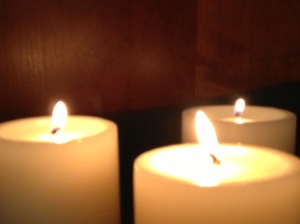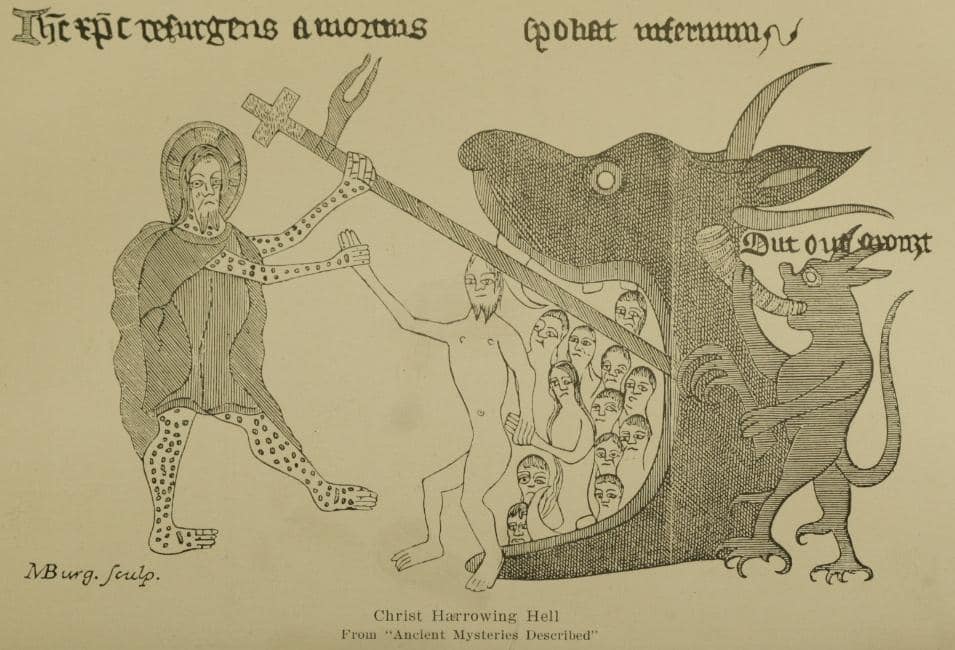
In between time. No longer the drama and agony of Good Friday. Nor yet the shock and joy of Easter. Just a curious blank space tinged with grief.
On Friday they had to go; it was getting on toward sunset. Leaving grief with the body of the teacher. But first, down from the cross. Carefully! Her son — her first born — just give her a moment. But the light is going. Quickly now. The borrowed tomb. That will have to do – close him in now. They’d be back as soon as possible; after the Sabbath. But meanwhile —
Monochromatic world in shades of gray. Going through the motions of Sabbath. Startling at every sound that might indicate pursuit. Perhaps the authorities wouldn’t stop there. Perhaps they would hunt down all his followers. Perhaps we will all die like that.
The long long hours of Sabbath. Tomorrow we will go. For a moment, awakening from sleep it seemed he — But no, never again.
We know this blankness, this emptiness, this waiting. Though we know Easter is coming, the church gives place to the in-between-ness of Holy Saturday. Our celebration this evening is after dark — in the ancient calendar, the next day. But we observe this threshold space – this liminal space – this in-between. We acknowledge our mortality…… Being subject to death,… And make no mistake, it is real death. Just as those who went before died. Prophets. The righteous. Everyone.
What about those who lived and died before Christ? Are they just doomed to eternal separation from God? That didn’t seem right. That didn’t seem to fit the character of God revealed in Jesus. By the fourth century the phrase was added to the Apostles creed, “he descended into hell“ or “to the dead“ in modern translation.The idea is based on hints in First Peter, a few of the Psalms, and other places in Scripture. The harrowing of hell it is called. Most depictions are from extra-canonical materials. It was a favorite theme of mystery and miracle plays in the middle ages. The hells-mouth or maw of hell provided great scenic and acrobatic possibilities. Depictions in icons and paintings show a heroic Christ helping, or dragging, various individuals out of a pit or hell‘s mouth. Often Jesus has Adam or whoever by the wrist, indicating that it is solely by Christ’s action that they are released; it is nothing they do themselves, it’s entirely the work of Christ.
The harrowing of hell assumes a kind of three-tiered universe which I don’t think we accept anymore, but it does address that curious blankness between Good Friday and the Easter Resurrection. And it addresses the problem of the righteous dead. Some commentators frame the problem as: What happens to divinity in this in-between-time? Did God die? Was the world without divinity for a day or so? On this in-between-day we acknowledge our own mortality, pray especially for the dead, particularly our own beloved dead, and affirm that it is only by God’s grace and God‘s action that we can hope in the resurrection. But because of Christ’s action, that is a sure and certain hope.



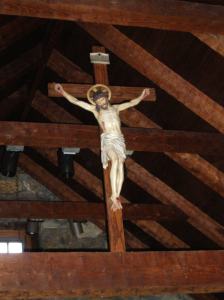
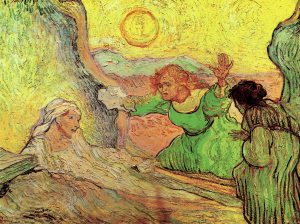
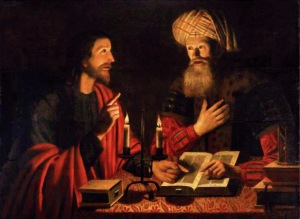
 Lully, lullay, Thou little tiny Child,
Lully, lullay, Thou little tiny Child,